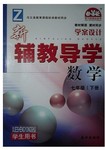题目内容
Little ink is left in the bottle,________?
- A.is it
- B.isn't it
- C.does it
- D.doesn't it

 黄冈小状元满分冲刺微测验系列答案
黄冈小状元满分冲刺微测验系列答案 新辅教导学系列答案
新辅教导学系列答案 阳光同学一线名师全优好卷系列答案
阳光同学一线名师全优好卷系列答案I’ve loved my mother’s desk since I was just tall enough to see above the top of it as mother sat doing letters. Standing by her chair, looking at the ink bottle, pens, and white paper, I decided that the act of writing must be the more wonderful thing in the world.
Years later, during her final illness, mother kept different things for my sister and brother. “But the desk,” she’d said again, “it’s for Elizabeth. ”
I never saw her angry, never saw her cry. I knew she loved me; she showed it in action. But as a young girl, I wanted heart-to-heart talks between mother and daughter.
They never happened. And a gulf opened between us. I was “too emotional(易动感情的)”. But she lived “on the surface(表面)”.
As years passed I had my own family. I loved my mother and thanked her for our happy family. I wrote to her in careful words and asked her to let me know in any way she chose that she did forgive(原谅) me.
I posted the letter and waited for her answer. None came.
My hope turned to disappointment(失望), then little interest and, finally, peace— it seemed that nothing happened. I couldn’t be sure that the letter had even got to mother. I only knew that I had written it, and I could stop trying to make her into someone she was not.
Now the present of her desk told, as she’d never been able to, that she was pleased that writing was my chosen work. I cleaned the desk carefully and found some papers inside —a photo of my father and a one-page letter, folded(折叠) and refolded many times.
Give me an answer, my letter asks, in any way you choose. Mother, you always chose the act that speaks louder than words.
【小题1】The writer began to love her mother’s desk ______.
| A.after Mother died |
| B.before she became a writer |
| C.when she was a child |
| D.when Mother gave it to her |
| A.mother was cold on the surface but kind in her heart to her daughter |
| B.mother was too serious about everything her daughter had done |
| C.mother cared much about her daughter in words |
| D.mother wrote to her daughter in careful words |
| A.deep understanding between the old and the young |
| B.different ideas between the mother and the daughter |
| C.free talks between mother and daughter |
| D.part of the sea going far in land |
| A.She had never received the letter. |
| B.For years, she often talked about the letter. |
| C.She didn’t forgive her daughter at all in all her life. |
| D.She read the letter again and again till she died. |
| A.My letter to Mother |
| B.Mother and Children |
| C.My mother’s Desk |
| D.Talks between Mother and Me |
I’ve loved my mother’s desk since I was just tall enough to see above the top of it as mother sat doing letters. Standing by her chair, looking at the ink bottle, pens, and white paper, I decided that the act of writing must be the more wonderful thing in the world.
Years later, during her final illness, mother kept different things for my sister and brother. “But the desk,” she’d said again, “it’s for Elizabeth. ”
I never saw her angry, never saw her cry. I knew she loved me; she showed it in action. But as a young girl, I wanted heart-to-heart talks between mother and daughter.
They never happened. And a gulf opened between us. I was “too emotional(易动感情的)”. But she lived “on the surface(表面)”.
As years passed I had my own family. I loved my mother and thanked her for our happy family. I wrote to her in careful words and asked her to let me know in any way she chose that she did forgive(原谅) me.
I posted the letter and waited for her answer. None came.
My hope turned to disappointment(失望), then little interest and, finally, peace— it seemed that nothing happened. I couldn’t be sure that the letter had even got to mother. I only knew that I had written it, and I could stop trying to make her into someone she was not.
Now the present of her desk told, as she’d never been able to, that she was pleased that writing was my chosen work. I cleaned the desk carefully and found some papers inside —a photo of my father and a one-page letter, folded(折叠) and refolded many times.
Give me an answer, my letter asks, in any way you choose. Mother, you always chose the act that speaks louder than words.
1.The writer began to love her mother’s desk ______.
|
A.after Mother died |
|
B.before she became a writer |
|
C.when she was a child |
|
D.when Mother gave it to her |
2.The passage shows that ______.
|
A.mother was cold on the surface but kind in her heart to her daughter |
|
B.mother was too serious about everything her daughter had done |
|
C.mother cared much about her daughter in words |
|
D.mother wrote to her daughter in careful words |
3.The word “gulf” in the passage means ______.
|
A.deep understanding between the old and the young |
|
B.different ideas between the mother and the daughter |
|
C.free talks between mother and daughter |
|
D.part of the sea going far in land |
4.What did mother do with her daughter’s letter asking forgiveness?
|
A.She had never received the letter. |
|
B.For years, she often talked about the letter. |
|
C.She didn’t forgive her daughter at all in all her life. |
|
D.She read the letter again and again till she died. |
5.What’s the best title of the passage?
|
A.My letter to Mother |
|
B.Mother and Children |
|
C.My mother’s Desk |
|
D.Talks between Mother and Me |
6.选A。由But she lived “on the surface ”. 和全文内容可知,作者的母亲表面上很冷漠,但心里充满了对作者的爱,正确
Michel is a young girl who works for the police 36 a handwriting expert (专家). She has helped 37 many criminals (罪犯) by using her special talents (天才).
When she was fourteen, Michel was already 38 interested in the differences in her friends' 39 that she would spend hours 40 them. After 41 college she went to France for a 42 two-year class in handwriting at the School of Police Science.
Michel says that it is 43 for people to hide their handwriting. She can discover 44 of what she needs to know simply 45 looking at the writing with her own eyes, 46 she also has machines 47 help her make 48 different kinds of paper and ink. This knowledge is often 49 great help to the police.
Michel believes that handwriting is a good 50 of what kind of person the 51 is. "I wouldn't go out with a fellow 52 I didn't like his handwriting. " She says. But she 53 she fell in love with her future husband, a young policeman 54 she studied his handwriting. It is later proved to be 55 , however.
|
1. |
|
|
2. |
|
|
3. |
|
|
4. |
|
|
5. |
|
|
6. |
|
|
7. |
|
|
8. |
|
|
9. |
|
|
10. |
|
|
11. |
|
|
12. |
|
|
13. |
|
|
14. |
|
|
15. |
|
|
16. |
|
|
17. |
|
|
18. |
|
|
19. |
|
|
20. |
|
 patient
patient